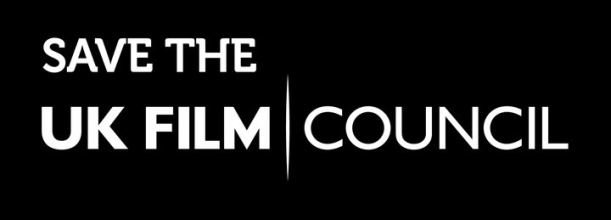Save the UK Film Council!

Yesterday, we reported that Secretary of State for Culture, Olympics, Media and Sport Jeremy Hunt had inexplicably decided to call time on the UK Film Council, one of the most vibrant cultural organisations in the country and the true backbone of the British film industry. Today, thousands of people have joined Best For Film‘s campaign to defend this extraordinary body and the superb work it does in promoting the best of contemporary UK film. You can sign our Save the UK Film Council petition or read on for our explanation of just why we can’t afford to lose the UKFC.
Art for art’s sake?
The temptation to cut arts funding in times of economic difficulty is an understandably tempting one. ‘Art for art’s sake’ is not an argument which makes financial sense, and there will always be those people for whom institutions such as the UK Film Council represent an unnecessary drain on resources which could be better used elsewhere. However, this is an attitude which is as short-sighted as it is philistinic. Without the support of the UK Film Council over the last decade, a huge number of superb films would never have been made – among them compelling portraits of contemporary British life such as This is England, Harry Brown, Brick Lane and Adulthood.
Last week in the Evening Standard, Samuel West discussed the problems inherent in withdrawing arts funding and expecting the private sector to plug the gap. “A civilisation is judged by its culture. Name me one Ancient Greek accountant” seemed like a witty throwaway remark at the time, but in the light of this attack on the Film Council it takes on a new significance. The UK has a fraction of the influence which it once enjoyed in the international community, but one field in which we still lead the world is the arts – if we stifle the creative talents of young British artists, we cannot simply expect them to labour on under impossible conditions.
What’s more, it is a mistake to assume that the only casualty of a major arts cut would be our cultural life. Despite Mr Hunt’s assertions that the UKFC must be closed in order to reassign its admin budget, there are actually few NDPBs which are as profitable as the Film Council…
Killing the cash cow
The UK film industry is one of our few sectors which has enjoyed consistent growth throughout the recession. Last year, its contribution to the economy was an extraordinary £4.3 billion – an increase of 50% on 2000, the year the UKFC was formed. UKFC-funded films have grossed in excess of £700 million worldwide, and its investments garner an average profit of 400%. Sorry, I’ll say that again – FOUR HUNDRED PER CENT. That’s £5 for every £1 you spend, and I defy any of Jeremy Hunt’s colleagues in the state-owned banks to offer us as good a rate.
Incredibly, the UKFC manages all this on a budget of only £15 million a year, much of which is money drawn from the countrywide tax on hope which is the National Lottery. This is compared to the £12 million being spent on the Pope’s controversial UK visit later this year, or the £7 billion which it’s costing us to host the Olympics – at its present budget, that’s enough money to run the UKFC for almost 467 years. Jeremy Hunt’s claims that destroying the UKFC was a cost-cutting measure are clearly specious, betraying his motives to be ideological rather than financial; for unclear reasons of its own, in attacking both the Film Council and the licence fee which funds the BBC the Conservative Party is holding a knife to the throat of contemporary British culture.
It is intuitively obvious to the Best For Film team that this absurd miscarriage of justice cannot be allowed to go ahead. That’s why we began a petition to protest the cuts and demand that Jeremy Hunt rescind his decision to attack such a vital cultural institution. Almost eight thousand people have signed after only a day, and we urge you to join them here and support our stand against the cowardly and short-sighted politics which sees the arts as an easy target. The UK Film Council has transformed the film industry in this country, and if we look the other way whilst it is dismantled then even harder and more damaging cuts will surely follow.





Recent Comments